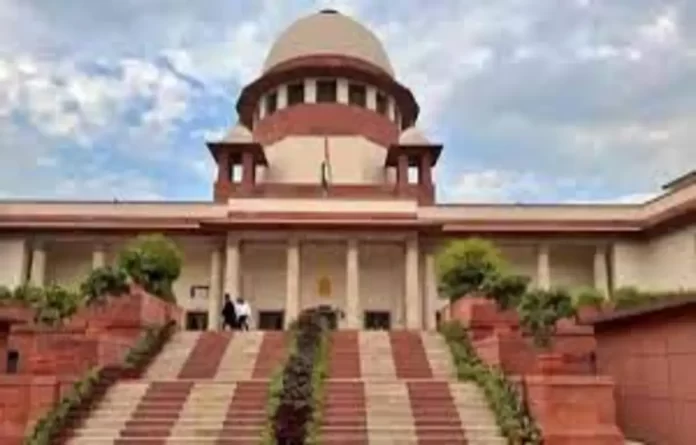The Supreme Court recently dismissed the Election Petition lodged by the former Assam BJP leader Aminul Haque Laskar and others challenging All India United Democratic (AIUDF) leader and Assam MLA Karim Uddin Barbhuiya’s 2021 Assembly election from the Sonai Legislative Assembly Constituency in Assam.
A bench of Justice Aniruddha Bose and Justice Bela M Trivedi remarked that the allegations levied by Laskar were vague and without any basis to constitute material facts to institute the election petition. The bench ruled that such a plea may be dismissed as rejected under Order 7 Rule 11 of Civil Procedure Code.
Assam MLA Karim Uddin Barbhuiya won the 2021 Assam Legislative Assembly Elections from Sonai Legislative Assembly Constituency defeating the then BJP candidate Aminul Haque Laskar.
The election plea was lodged by the Laskar before the Gauhati High Court under Section 100(1)(b) and Section 100(1)(d)(i) of The Representation of the People’s Act, 1951 (RP Act) alleging corrupt practices adopted by Barbhuiya while filing the nominations for contesting the Assembly Elections from Sonai Constituency.
The Gauhati High Court dismissed Barbhuiya’s application to reject the election petition. Subsequently, he moved the Supreme Court challenging the High Court’s judgment. Perusing the election petition, the apex court found that the allegations levied by the Laskar were bald and vague allegations without stating the material facts in support thereof as required to be stated under Section 83(1)(a) of the RP Act. The Section 83(1)(a) of the RP Act states that an election petition shall contain a concise statement of the material facts on which the petitioner relies.
The court further clarified that where the allegations of corrupt practice are labeled, Laskar was required to make a concise statement of material facts as to how the appellant had indulged in corrupt practice of undue influence by directly or indirectly interfering or attempting to interfere with the free exercise of any electoral right.
The court remarked that the non-mentioning of the particulars as to how such improper acceptance of nomination had materially affected the result of the election, is apparent on the face of the Election Petition. Consecutively, the appeal was allowed while dismissing the election petition pending before the High Court.


